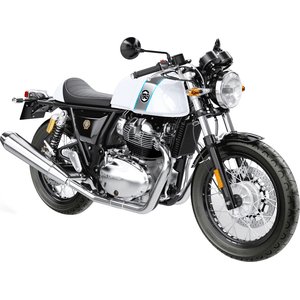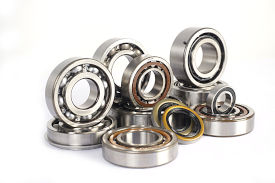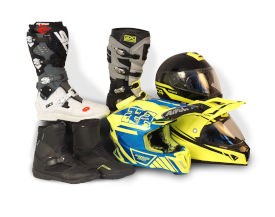Royal Enfield Continental GT 650 (2019-2021): A Café Racer for the Real World
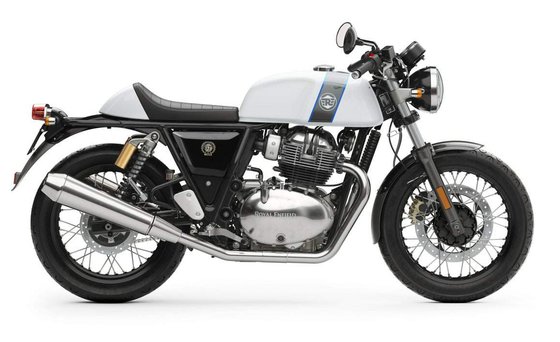
Introduction
The Royal Enfield Continental GT 650 isn’t just a motorcycle—it’s a time machine with modern sensibilities. Introduced in 2018 as part of Royal Enfield’s bold leap into the middleweight segment, this café racer iteration of the 650 twin platform quickly became a global darling. From 2019 to 2021, it solidified its reputation as an accessible, stylish, and surprisingly practical machine that bridges the gap between vintage aesthetics and everyday usability. Having spent a week with this retro-modern icon, here’s why it continues to turn heads and win hearts.
Design: Retro Charm Meets Purposeful Aggression
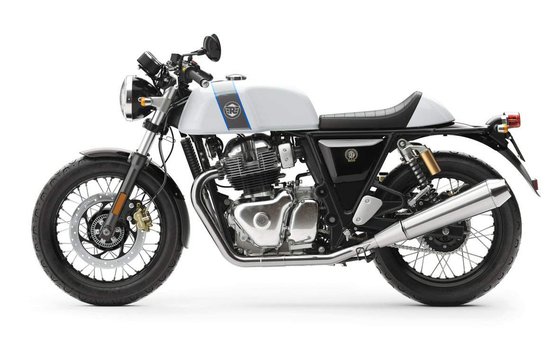
The Continental GT 650 wears its café racer DNA proudly. The sculpted fuel tank—borrowed from its 1960s predecessor—flows into a solo seat (with an optional dual seat), while clip-on handlebars and rear-set footpegs create a poised, aggressive stance. But look closer, and you’ll find clever compromises. The clip-ons are mounted on risers, the seat height remains a manageable 790 mm (31.1 inches), and the footpegs aren’t so high that they punish your knees. It’s a design that whispers “race-ready” but shouts “ride me daily.”
The blacked-out engine cases, spoke wheels, and minimalist bodywork keep the vibe authentically retro. Yet, modern touches like LED lighting, dual-channel ABS, and a digital-analog combo instrument cluster remind you this isn’t a museum piece. Royal Enfield’s paint choices—from classic Racing Green to bold Orange Crush—ensure it stands out in a sea of sameness.
Performance: Friendly Firepower
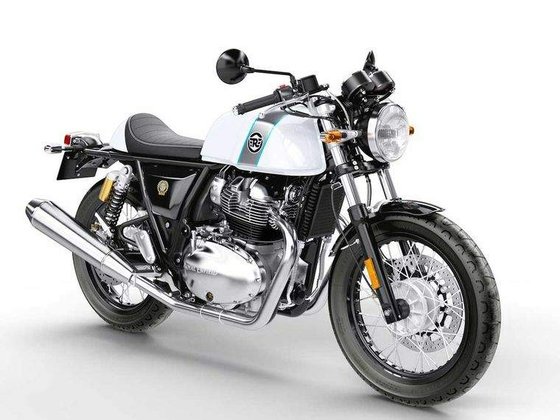
At its heart lies the 648cc air/oil-cooled parallel twin, a gem of an engine that’s as charismatic as it is approachable. With 47 hp (35 kW) and 51.5 Nm (38 lb-ft) of torque, it’s no liter-bike slayer, but that’s precisely its charm. The 270-degree crankshaft delivers a throaty, uneven exhaust note that echoes British twins of yore, while fuel injection ensures crisp throttle response.
Twist the grip, and power builds linearly from 2,500 RPM, peaking around 5,200 RPM. It’s happiest between 60-120 km/h (37-75 mph), making it ideal for backroads and urban commutes alike. The six-speed gearbox shifts smoothly, though the clutch (a slip-and-assist unit) is light enough for stop-and-go traffic. Fuel efficiency hovers around 25-28 km/l (58-66 mpg), so the 12.5L (3.3-gallon) tank offers a 300 km (186-mile) range—enough for a spirited day ride.
Handling: Confidence in Every Corner
The Continental GT 650’s steel double-cradle frame feels reassuringly solid, with a 24-degree rake that strikes a balance between agility and stability. Weighing in at 198 kg (437 lbs) dry, it’s no featherweight, but the low center of gravity and narrow profile make it flickable through twisties. The 41mm telescopic forks and dual rear shocks are tuned for comfort, soaking up bumps without wallowing.
Push it hard, and the Pirelli Phantom Sportscomp tires—100/90-18 front, 130/70-18 rear—grip tenaciously. Braking is handled by a single 320mm front disc and 240mm rear disc, both with ABS. While not track-sharp, the setup inspires confidence, especially in wet conditions. This is a bike that encourages you to lean deeper, brake later, and chase that café racer fantasy—without biting back.
Competition: How Does It Stack Up?
In the middleweight retro segment, the Continental GT 650 faces stiff rivals:
-
Triumph Thruxton 900
The Thruxton is sharper, faster, and pricier. Its 865cc parallel twin pumps out 68 hp, but its aggressive ergonomics and premium price tag make it less forgiving for daily rides. The GT 650 counters with affordability and a more relaxed demeanor. -
Kawasaki W800
Kawasaki’s W800 leans harder into nostalgia with its vertical twin and retro styling. However, its 47 hp engine feels anemic compared to the Enfield’s torque-rich delivery. The GT 650 also undercuts it on price. -
Honda CB650R
A modern naked bike with a 94 hp inline-four, the CB650R is faster but lacks the GT 650’s vintage appeal. The Honda appeals to tech enthusiasts; the Enfield speaks to souls who crave character. -
Ducati Scrambler Café Racer
Ducati’s offering is more powerful (73 hp) and premium, but its $12,000+ price tag places it in another league. The GT 650 delivers 80% of the experience at half the cost.
Verdict: The Continental GT 650 isn’t the fastest or most advanced, but its blend of style, accessibility, and charm makes it a standout.
Maintenance: Keeping the Twin Purring
Ownership is refreshingly straightforward, but here’s what to prioritize:
-
Oil Changes
The engine thrives on SAE 10W-50 oil (3.1L with filter). Change every 5,000 km (3,100 miles) or annually. Pro tip: Upgrade to a high-flow air filter from MOTOPARTS.store for smoother throttle response. -
Chain Care
The 100-link chain and 15/38 sprocket setup demand regular cleaning and lubrication. Check tension every 1,000 km (620 miles). -
Brake Fluid
DOT 4 fluid should be flushed every two years. Stick to OEM-spec pads for consistent ABS performance. -
Tire Pressure
Maintain 2.2 bar (32 psi) front and 2.5-2.7 bar (36-39 psi) rear for optimal grip and wear. -
Valve Adjustments
Schedule inspections every 10,000 km (6,200 miles). The SOHC design simplifies the process compared to DOHC engines.
MOTOPARTS.store Recommendations:
- Upgrade to adjustable rear shocks for heavier riders or touring.
- Install a premium exhaust system to amplify that 270-degree growl.
- Swap the stock seat for a gel unit on long rides.
Conclusion: More Than a Poseur
The Royal Enfield Continental GT 650 is a rare beast—a café racer that doesn’t punish you for living in the real world. It’s a bike you can ride to a coffee shop, carve canyons with, or even tour on (with a tail bag). Its engine charms without intimidating, its styling turns heads without pretension, and its price leaves room in your wallet for customization.
For riders seeking a motorcycle that’s equal parts personality and practicality, the GT 650 isn’t just a nod to the past—it’s a blueprint for the future of accessible motorcycling. And with MOTOPARTS.store’s catalog of upgrades, you can make it uniquely yours.
Specifications sheet
| Engine | |
|---|---|
| Stroke: | Four-stroke |
| Ignition: | Digital electronic |
| Max power: | 35 kW | 47.0 hp |
| Max torque: | 52 Nm |
| Fuel system: | Bosch fuel injection |
| Max power @: | 7150 rpm |
| Displacement: | 648 ccm |
| Max torque @: | 5250 rpm |
| Configuration: | Parallel |
| Cooling system: | Air/oil-cooled |
| Compression ratio: | 9.5:1 |
| Number of cylinders: | 2 |
| Dimensions | |
|---|---|
| Wheelbase: | 1400 mm (55.1 in) |
| Dry weight: | 198 |
| Wet weight: | 212 |
| Seat height: | 790 mm (31.1 in) |
| Ground clearance: | 174 mm (6.9 in) |
| Fuel tank capacity: | 12.5 L (3.3 US gal) |
| Drivetrain | |
|---|---|
| Final drive: | chain |
| Chain length: | 100 |
| Transmission: | 6-speed, constant mesh |
| Rear sprocket: | 38 |
| Front sprocket: | 15 |
| Maintainance | |
|---|---|
| Rear tire: | 130/70-18 |
| Engine oil: | 10W50 |
| Front tire: | 100/90-18 |
| Idle speed: | 1200 ± 100 RPM |
| Break fluid: | DOT 4 |
| Spark plugs: | BOSCH UR5CC |
| Spark plug gap: | 0.7–0.8 mm |
| Forks oil capacity: | 0.95 |
| Engine oil capacity: | 3.1 |
| Recommended tire pressure (rear): | 2.5 bar (36 psi) solo, 2.7 bar (39 psi) with passenger |
| Recommended tire pressure (front): | 2.2 bar (32 psi) |
| Chassis and Suspension | |
|---|---|
| Frame: | Steel tubular double cradle |
| Wheels: | Spoke wheels, 18-inch |
| Rear tire: | 130/70-18 |
| Front tire: | 100/90-18 |
| Rear brakes: | Single 240 mm disc, 1-piston floating caliper (ABS) |
| Front brakes: | Single 320 mm disc, 2-piston floating caliper (ABS) |
| Rear suspension: | Dual shocks |
| Front suspension: | 41mm telescopic fork |
| Rear wheel travel: | 89 mm (3.5 in) |
| Front wheel travel: | 110 mm (4.3 in) |



